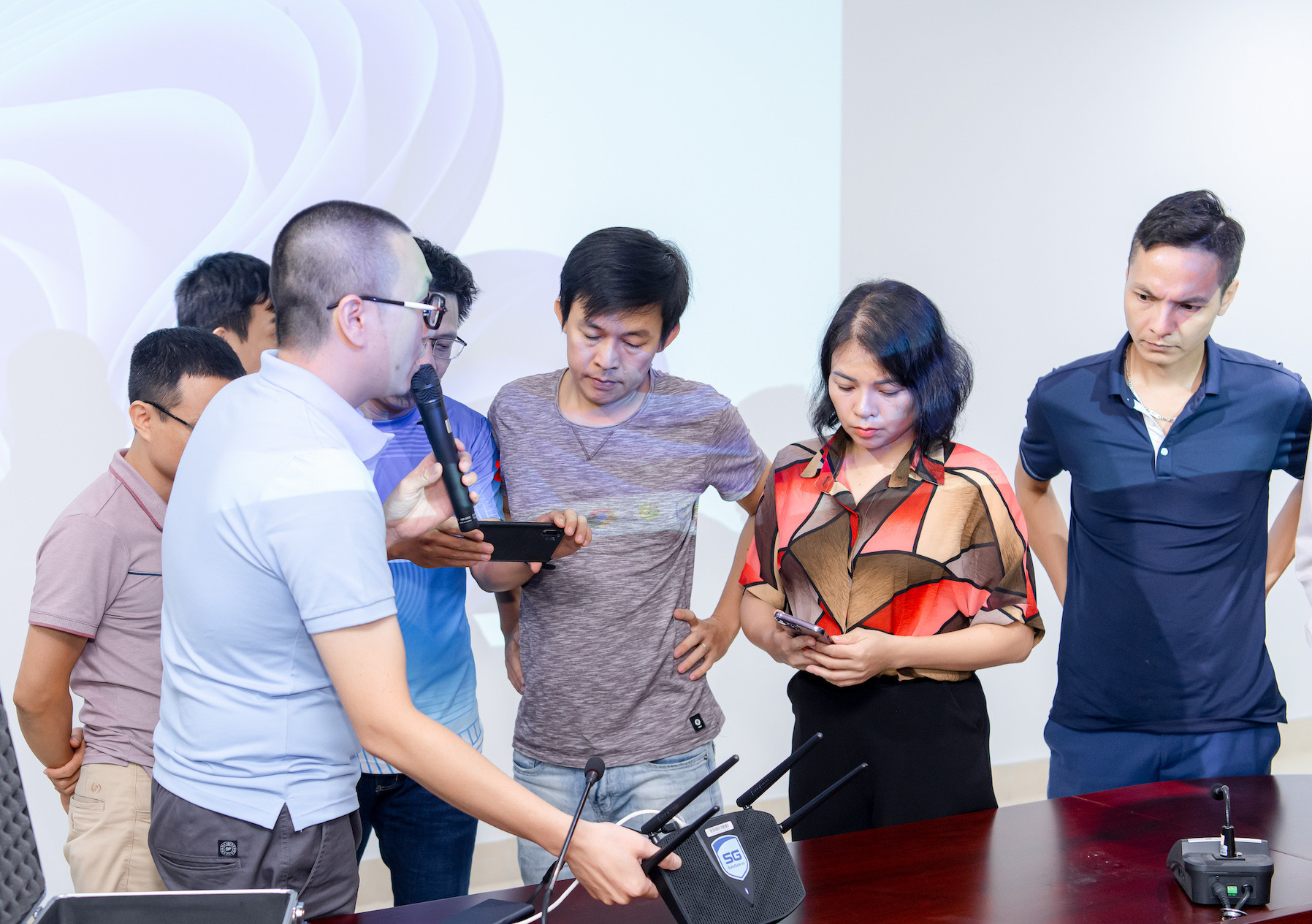
Respecting your child's privacy is protecting them.
As a middle school teacher, Ms. TT Tram (Hoai Duc, Hanoi ) finds it difficult to guide her children on how to use the internet. "Even though I have a more modern mindset than parents in the past, when I see my children spending too much time on the computer, I still find it hard to control myself and sometimes raise my voice and try to control them," Ms. Tram said.
While talking to the parents of the students in the class, Ms. Tram received empathy from many. The parents all agreed that sometimes stressful work and busy household chores make them stricter when dealing with their children.
"In some of my students' families, parents even confiscate all of their children's devices, or even turn off the entire house's Wi-Fi so that the children can concentrate on studying. In my opinion, that's excessive," Ms. Tram shared.
Ms. Tram also knew that prohibition or control wouldn't be the optimal method, especially when children are in their adolescence, a time when they like to explore and express themselves. During the parent-teacher meeting, she proactively organized a discussion where parents could share their opinions on supporting their children's internet use.
"It was also an opportunity for me to reflect and work with my colleagues to find the right solutions. As parents in the 4.0 era, we also need 4.0 methods in our role as guides for our children."
According to Ms. Tram, the first step is to truly respect your child, understanding that they also need their own private space online, not just their own room. "When children are empowered, they feel trusted and more responsible. Isn't that good for them, isn't it protecting them?" Ms. Tram shared.
In fact, the current legal system in our country regarding children's privacy rights and the content related to children's privacy rights is already stipulated in the Law on Children. Besides preventing the leakage of information that could harm the safety of teenagers, parents also need to allow their children the freedom to explore. In the 4.0 era, the right to learn is an important right for teenagers to develop and contribute positive values to humanity.
Parents also need to "learn" how to accompany their children.
Ms. Tram shared at the parent-teacher meeting that the most popular approach was to integrate with the children. “Being older doesn't mean we can't use or understand our children's backgrounds and language styles. On the contrary, understanding them allows us to better protect them, instead of controlling them. This is something I need to learn more about.”
Prohibitions and controls, whether overt or covert, inevitably create negative psychological effects on children. Sometimes, teenagers will react negatively when they feel they are being controlled.
Thanh Nhan (Ho Chi Minh City) - a TikTok content creator (@nhandian) with 680,000 followers, said: “Having been a teenager myself, I understand better than anyone the pressure and control parents face when using social media. Now that I'm grown up and working directly in the digital environment, I realize that safety actually depends on how each person uses the internet. Each platform has strict security rules and its own safety features that I wish someone had told me about earlier when I was younger.”
For example, with TikTok, the Smart Family feature helps families adjust safety settings based on individual needs. Parents don't need to access their children's accounts to: limit screen time; filter and manage displayed content; and make recommendations… If parents are aware of features like these and the family discusses and agrees on them before implementation, it would be a great solution.”
According to survey data from the Ministry of Labour, Invalids and Social Affairs , in the first three months of 2023, 89% of children accessed and used the Internet, and of these, 87% used the Internet daily. The Internet has become a part of children's lives and is difficult to "cut off".
When accompanying children online, parents not only need to be attentive but also need to be equipped with the right knowledge. To do this, each parent needs to dedicate time to self-study and also talk with their children. Engaging with children helps them understand their thoughts and recognize changes in their thinking or psychology. At this point, the support becomes more practical and beneficial than ever.
Source


![[Photo] Standing Committee member of the Party Central Committee Tran Cam Tu presents the Decision appointing the Secretary of the Party Committee of the Ho Chi Minh National Academy of Politics.](/_next/image?url=https%3A%2F%2Fvphoto.vietnam.vn%2Fthumb%2F1200x675%2Fvietnam%2Fresource%2FIMAGE%2F2026%2F02%2F02%2F1770039902160_le-cong-bo-bt-hvctqg-11-7880-jpg.webp&w=3840&q=75)








































































































![OCOP during Tet season: [Part 3] Ultra-thin rice paper takes off.](/_next/image?url=https%3A%2F%2Fvphoto.vietnam.vn%2Fthumb%2F402x226%2Fvietnam%2Fresource%2FIMAGE%2F2026%2F01%2F28%2F1769562783429_004-194121_651-081010.jpeg&w=3840&q=75)







Comment (0)